DISSEMINATION AND COMMUNICATION
Webinar - Vídeo-podcast on Postdoctoral Marie Curie Projects
I collaborated with the “Oficina de Proyectos Europeos” of the Universidad Rey Juan Carlos in an episode of the Video Podcast “Exploring Horizons: URJC Experiences in International Projects”.
The webinar can be seen at YouTube link
Semana de la Ciencia y la Innovación 2024 (Fundación para el Conocimiento-madrid+d)
Talk on Conservation and Restoration of aquatic ecosistems during the activity “Islas acuáticas de vida” in collaboration with other IICG-URJC researchers and teachers. Organized by the “Unidad de Cultura Científica y de la Innovación (UCC+I) de la URJC”.
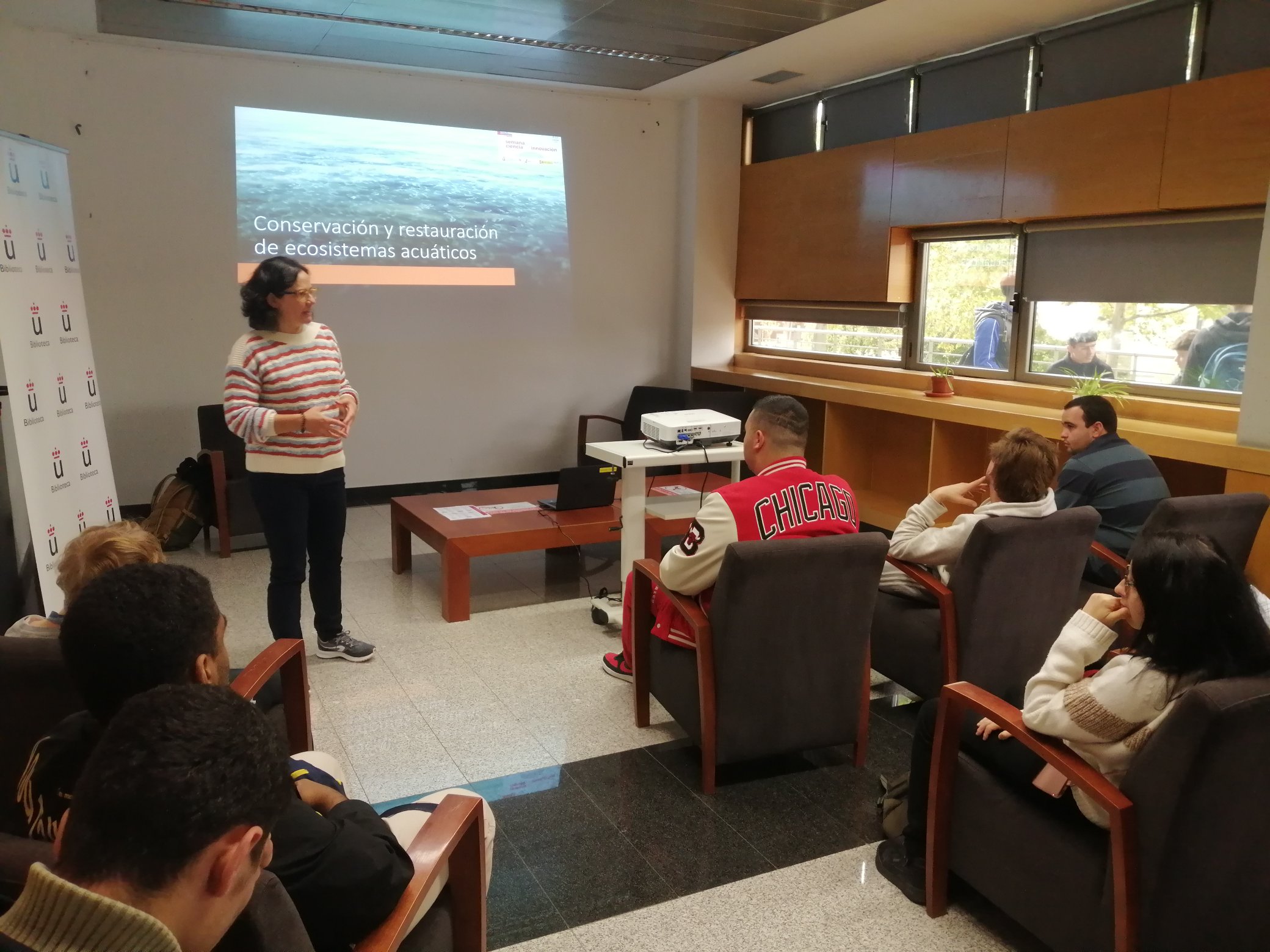
INTERVIEW in “Generación Dos Punto Cero”
I was interviewed by students from the “Facultad de Ciencias de la Información, Universidad Complutense de Madrid” about Climate Change.
YouTube link (May, 2024)
SEMINAR at the Museo Nacional de Ciencias Naturales
Madrid (25 Nov. 2022)
‘Effects of climate change on marine macrophytes’. Temporal analysis of warming-driven distributional changes in macrophytes.
The talk can be seen at YouTube link

Biodiversos Ecological Symposium (BES 2023)
Happy to have presented my persepective on the research career experience in “Biogeografía Integradora y Cambio Global en Ecosistemas Costeros” during the Ecological Symposium nicely organized by the predocs of the “Área de Biodiversidad y Conservación” of Universad Rey Juan Carlos.
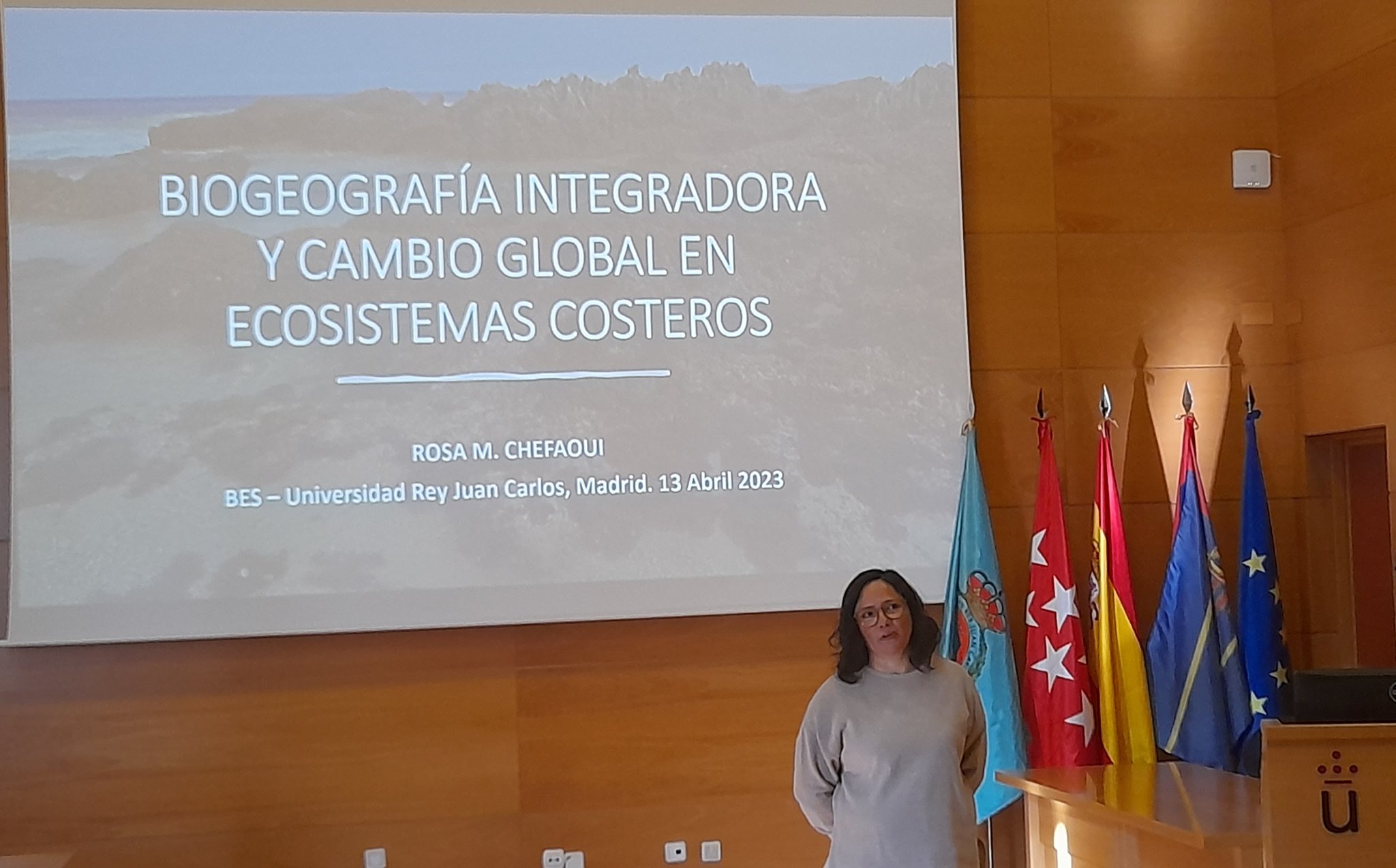
Speaker at the IBS VANCOUVER 2022
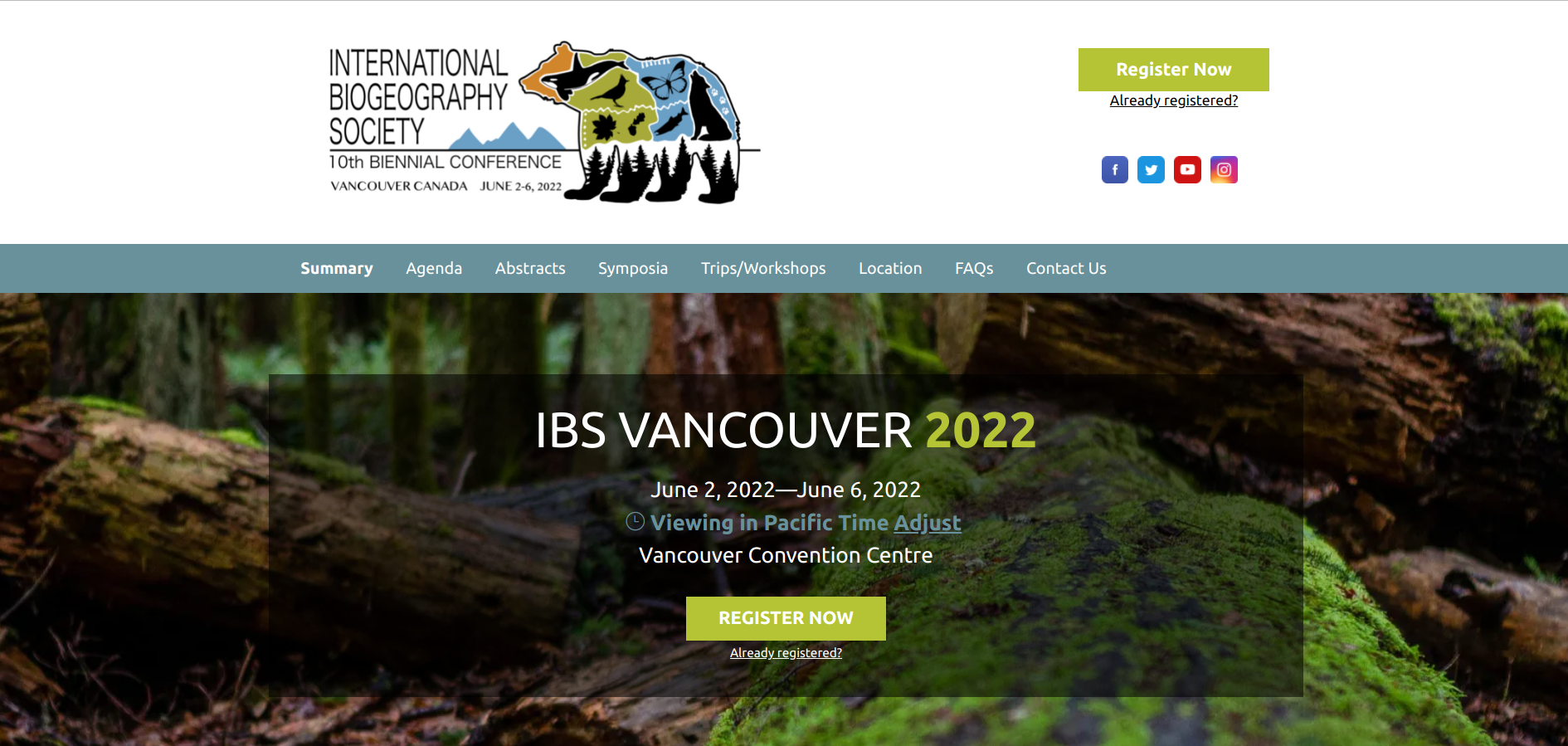

IBS Vancouver 2022 is the 10th Biennial Conference of the International Biogeography Society
Very happy to have been invited as speaker to the CHANGING OCEAN ECOLOGY AND BIOGEOGRAPHY Symposium and have the opportunity to exchange ideas with such amazing marine ecologists.
MADRID ES CIENCIA (IFEMA, Madrid, 2-5 March 2022)
The Area of Biodiversity and Conservation (Biodiversos) was at the stand of the University Rey Juan Carlos and we could explain our research to many students.
MarHot research was shown in a video exhibited… see more here
WORKSHOP
Identifying Priorities for Conservation, Monitoring and Research of Seagrass Ecosystems in Europe (22-24 March 2022)
Organized in the context of EuroSea Project. 40 participants from 27 European countries.

Paper on the future of seagrasses in Banc d’Arguin (Mauritania)
Seagrass meadows in Banc d’Arguin (Mauritania), one of the largest in the world, can suffer a regime shift along the 21st century due to increasing sea temperatures and sea level rise with climate change.
We produced a fine scale Digital Elevation Model (DEM) by coupling bathymetric and elevation data from different sources using rstats, QGIS and SAGA to estimate the vertical niche for each species conditioned by future sea level rise.
We forecast a contraction of the temperate Cymodocea nodosa (widest and largest leaves) and Zostera noltei (the one with thickest meadows) at their trailing (southern) edges, whereas the tropical Halodule wrightii (thin and sparse) would experience a northward expansion beyond its current northern edge at the Gulf of Arguin.
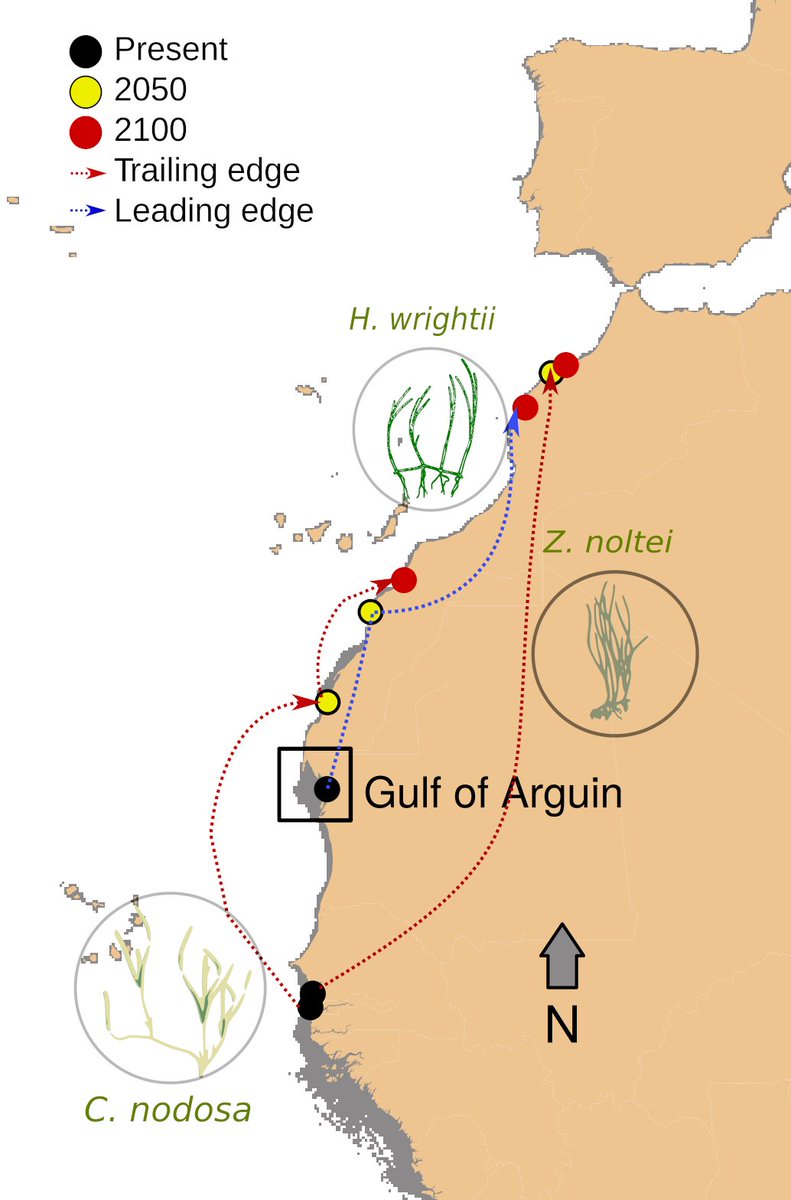
You can check more here:
Predicted regime shift in the seagrass ecosystem of the Gulf of Arguin driven by climate change Global Ecology and Conservation 32: e01890. https://www.sciencedirect.com/science/article/pii/S2351989421004406?via%3Dihub
Paper on waterbird ecological networks
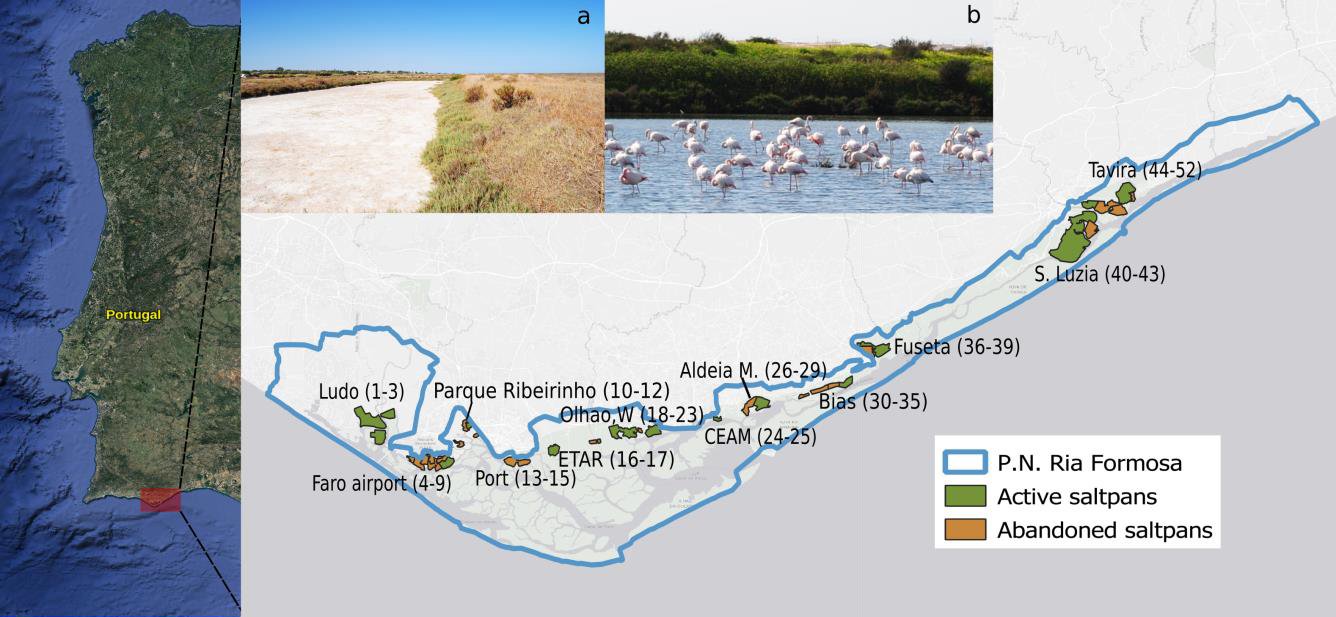
The findings enhance the role of the active saltpans located in the Ria Formosa Natural Park (Algarve, Portugal) as a key site for the conservation of resident and migratory waterbirds.
This research explores the spatial and temporal dynamics of coastal communities. I used Bipartite ecological networks to model relations between the bird species and surveyed saltpans. It was an useful approach to integrate ecologically meaningful zero count data.
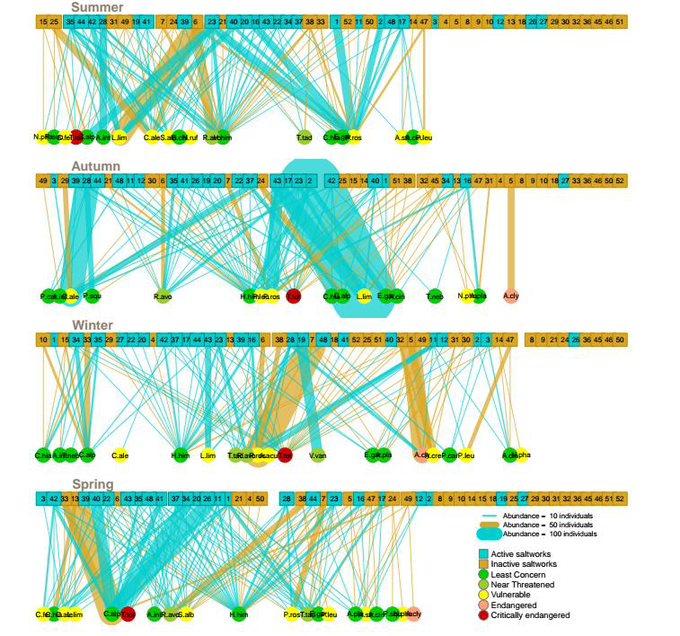
Data and R script to reproduce the analyses and figures are available in my GitHub page: https://github.com/Chefaoui/Chefaoui_2021
You can check the publication here:
Seasonal variations of waterbird ecological networks under different saltpans management. Ecological Informatics 64: 101364. https://doi.org/10.1016/j.ecoinf.2021.101364
Webinar Humboldt Day
The International Biogeography Society (IBS) hosted the International Humboldt Day during the week surrounding September 14th 2020. IBS invited MadresBDV to organize an event. Carola, Esther, Elena, Sara, Marta and I organized the event: “Finding ways to feature and support more Women in Biogeography“.
We had speakers from different scientific areas related to Biogeography: Maria Dornelas, Christine Meynard, Anna Traveset and Kathy Willis. The webinar was recorded, so you can see it again.
You can watch the video here.
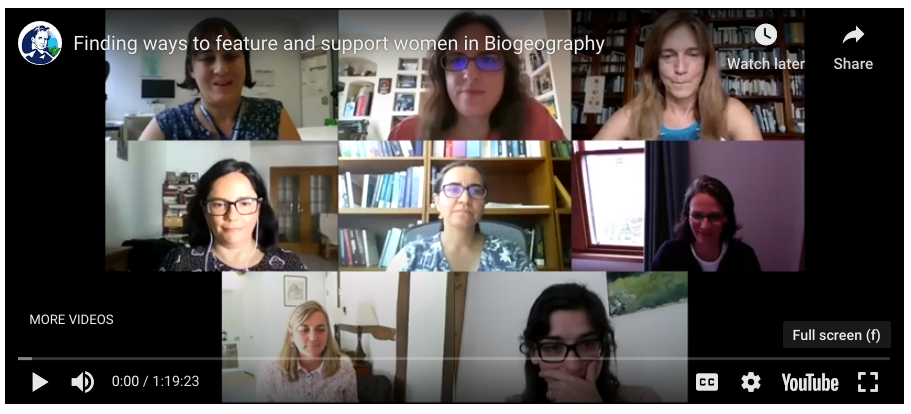
Invited Speaker at the EEF 2019
Glad to attend and present at the “Evolutionary ecology in the marine realm” Symposium, @eeflisbon2019 my talk on “Climate-driven distributional shifts of seagrasses and algae: from past to future”
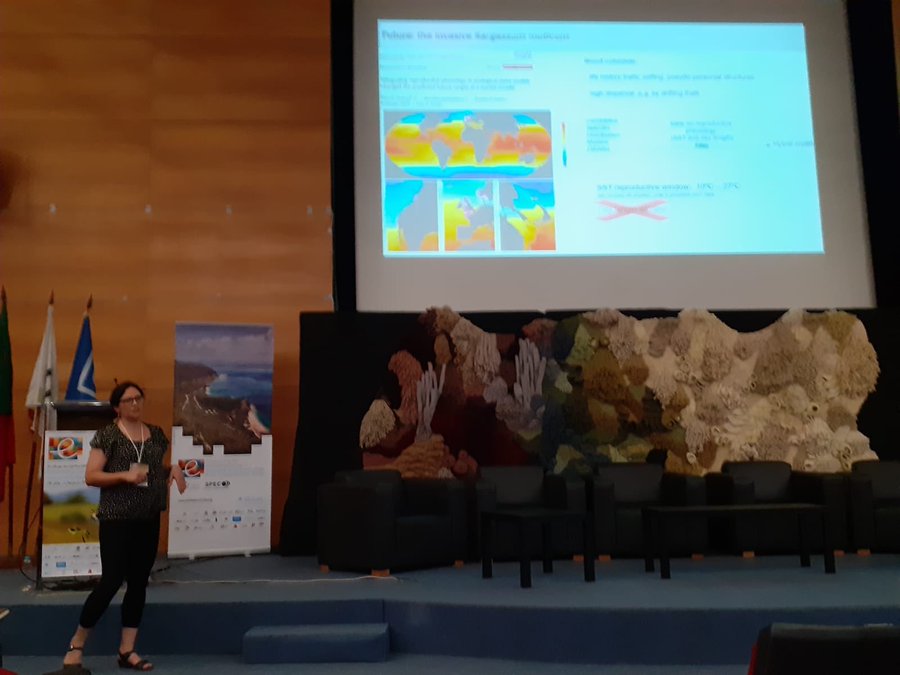
There I could contact with other mothers in STEM from @madresBDV (I was pregnant in that congress :)
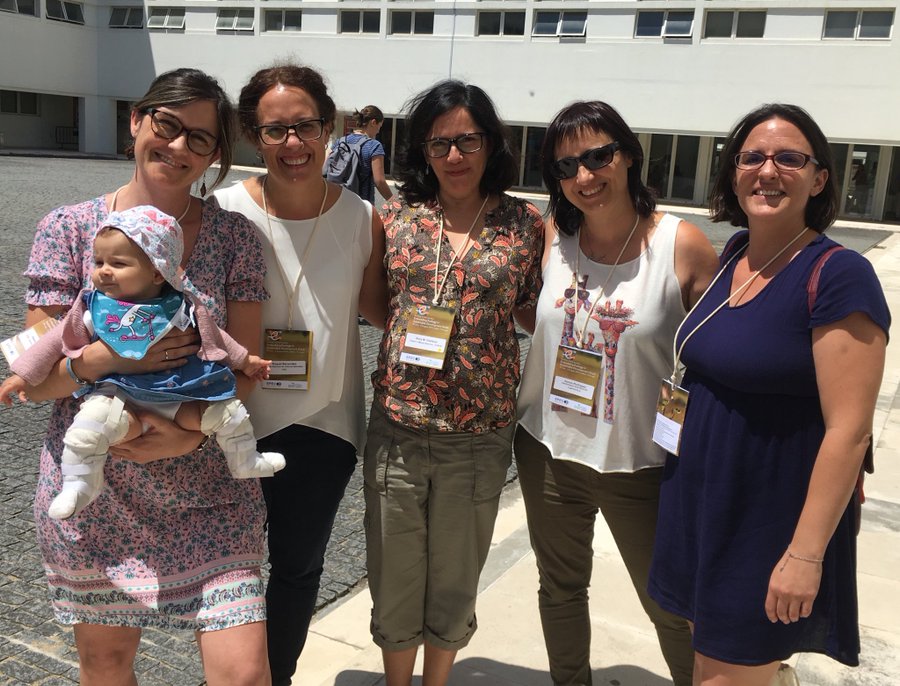
Press releases
Abandonment of traditional saltworks facilitates degradation of halophytic plant communities and Carpobrotus edulis invasion. Blog of the Journal of Vegetation Science and Applied Vegetation Science.
Abandono de salinas tradicionais facilita degradação de comunidades vegetais e invasão por chorão-da-praia Newsletter cE3c Centre for Ecology, Evolution and Environmental Changes (In Portuguese).
Habitat loss and possible extinction of seagrasses in the Mediterranean Sea CCMAR web (In Portuguese).
Adiós a la Posidonia en el Mediterráneo El Asterisco (In Spanish).
Documentan la historia evolutiva de tres especies de arbustos de zonas áridas Museo Nacional de Ciencias Naturales (In Spanish).
Investigadores del MNCN documentan la historia evolutiva de tres especies de arbustos de zonas áridas El Periódico (In Spanish).
Cómo han evolucionado tres especies de arbustos en zonas áridas Sinc (In Spanish).
Científicos españoles y portugueses describen la evolución de los tojos del sur de la Península Ibérica Lainformación.com (In Spanish).
Cientistas desvendam história dos tojos que ajudam a manter a costa portuguesa Wilder (In Portuguese).
Investigadores del MNCN documentan la historia evolutiva de tres especies de arbustos de zonas áridas Informativos telecinco (In Spanish).
Investigadores del MNCN documentan la historia evolutiva de tres especies de arbustos de zonas áridas La Vanguardia (In Spanish).
Photo contest 2019
Photo contest: ’Aos Olhos do CCMAR’ - photo contest 4th edition 2019. I presented a photograph showing how the abandonment of traditional saltworks have led to an expansion of Carpobrotus edulis and to a degradation of the communities of plants adapted to living in a saline environment. Carpobrotus edulis is original from South Africa and an invasive species in many coastal regions throughout the world. Here we see how this species has expanded to invade abandoned saltworks close to the Faro Airport (Portugal).
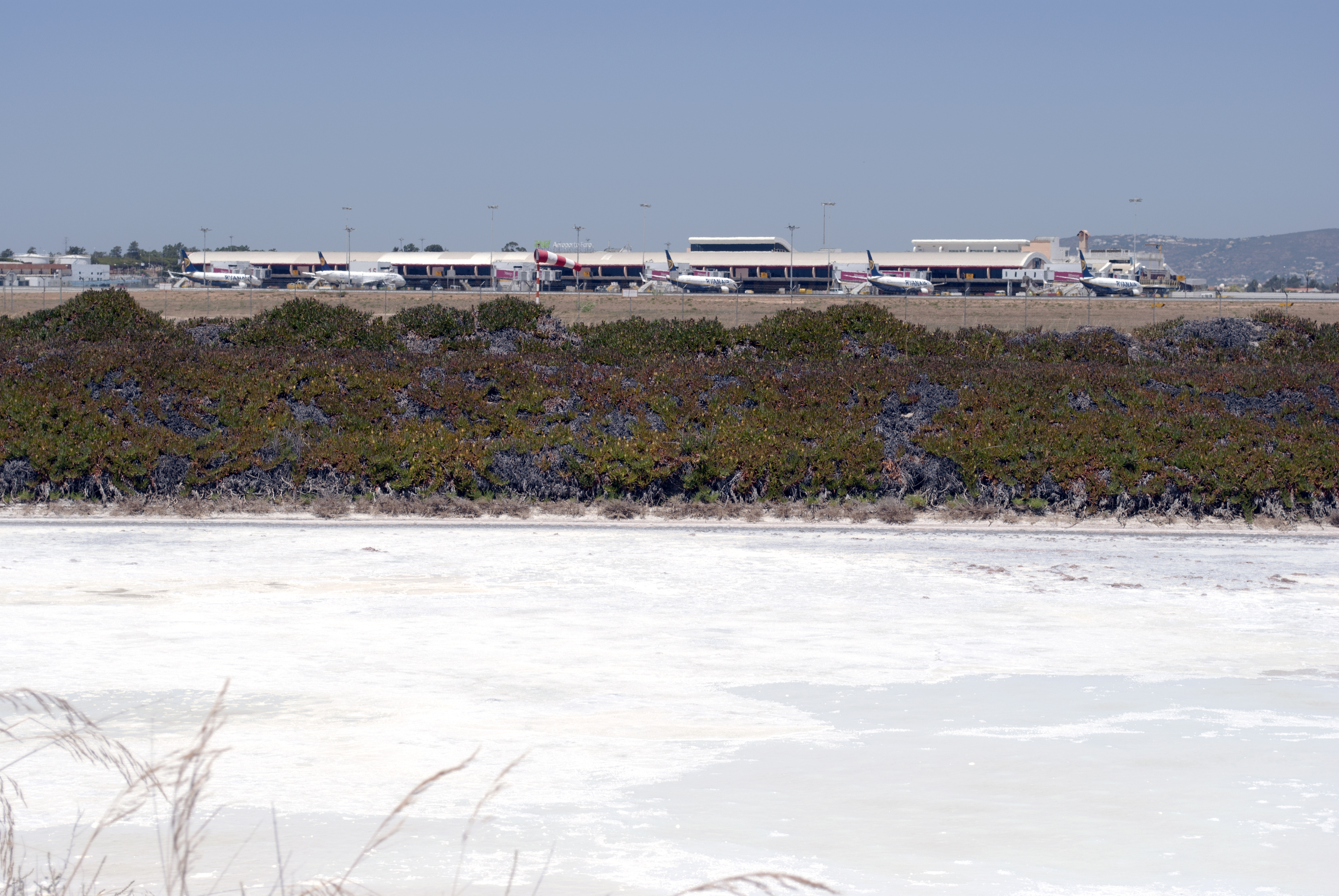
Science Week 2018
Semana C&T 2018. “Ciência Imperial”: Um projeto, uma Imagem, uma Imperial!
Nice event at which scientists are challenged to present their research to the population with the help of a single image in an informal setting.
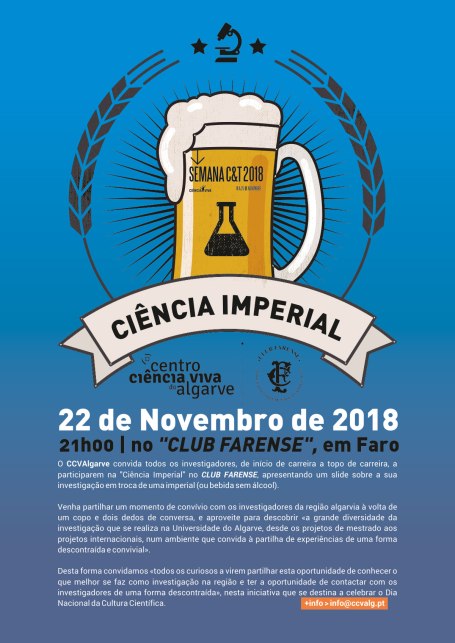
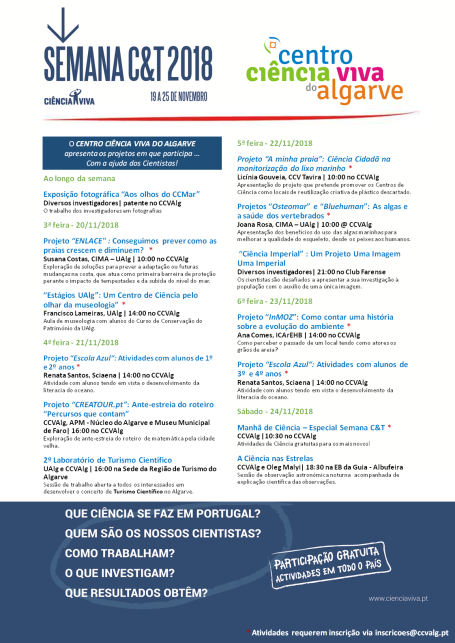
The event took place at the Club Farense, a centuries-old cultural association. I introduced my work on habitat loss of seagrass due to climate change. There were amazing presentations on shark movement, cancer, malaria treatments, plastic recycling…
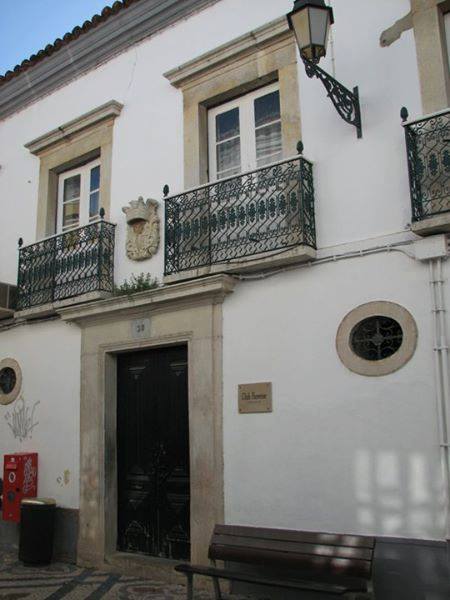
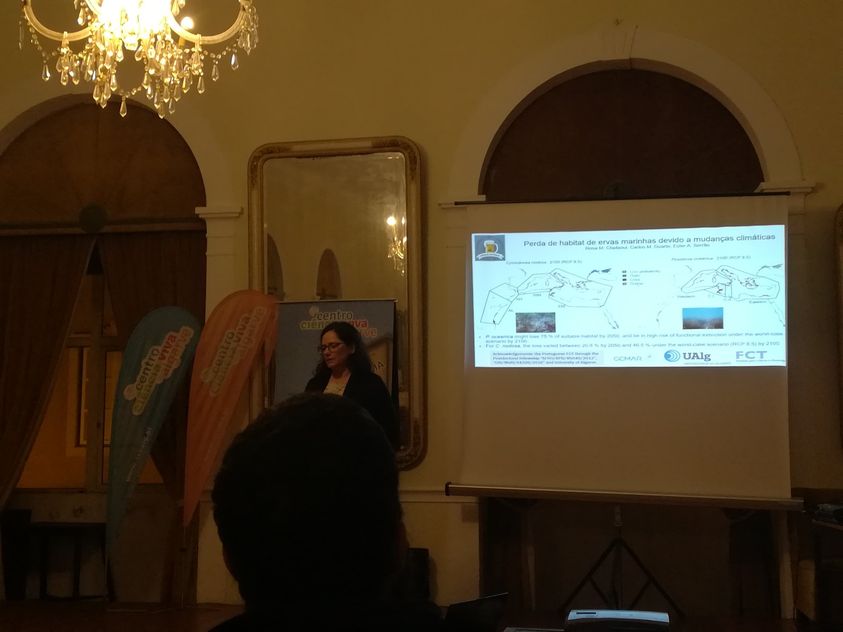
Here is the link to some photographs of the event made available by the organizer Centro Ciência Viva do Algarve.
Science Week 2016
Semana de Cultura Científica do Centro de Ciências do Mar (CCMAR) 3 minutes oral talk on Prediction of Cymodocea nodosa seagrass meadows.
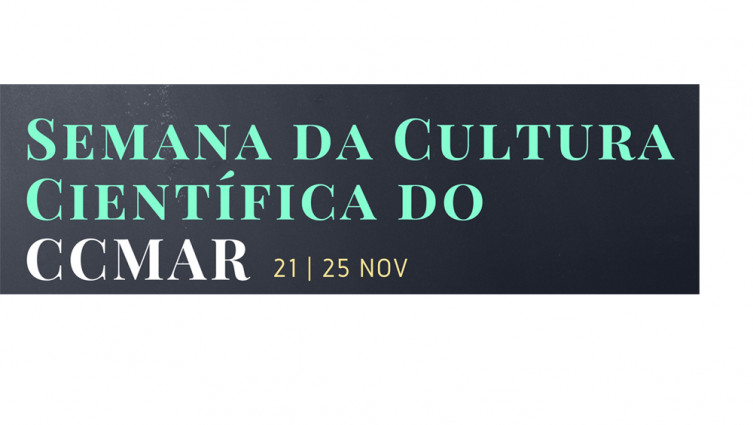
Science Week 2015
Semana de Cultura Científica do Centro de Ciências do Mar (CCMAR). Poster: Can we use niche models of indicator species to predict the distribution of endangered communities?